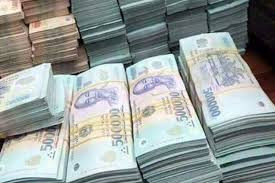Tax industry gets to know individuals' bank transaction data
Decree 126 allows the Tax sector to grasp information on balances and transaction details through individuals' bank accounts - a tool to help collect e-commerce taxes.
Decree 126 details a number of articles ofLaw on Tax Administrationwill take effect from December 5. Accordingly, information such as account transactions, balances, and transaction data will be provided by banks at the request of the head of the tax authority. This is for the purpose of inspection and verification to determine tax obligations... The tax authority is responsible for keeping information confidential and is fully responsible for the safety of the information.
 |
| Illustration from the Internet. |
Not only that, every month, commercial banks must provide payment account information of each taxpayer including: account holder name, account number according to tax code issued by tax authorities, account opening date, account closing date.
In October, the Director of the Inspection and Control Department (General Department of Taxation) said that they had coordinated and requested 45 commercial banks to provide information so that the industry could have data for tax management. According to data provided by banks, in Hanoi alone, there were more than 18,300 organizations and individuals with online sales activities with a total income of 1,462 billion VND from Google, Facebook, YouTube... Thereby, the tax authority guided organizations and individuals to declare and pay taxes and collect nearly 14 billion VND.
In addition, banks must also deduct and pay tax obligations.of foreign suppliers with permanent establishments in Vietnam doing businesse-commerce, on digital platforms with domestic organizations and individuals.
Specifically, after determining that the foreign supplier has not registered, declared, or paid taxes, the General Department of Taxation will notify commercial banks and payment intermediaries so that these units can determine the transaction account and deduct and pay tax obligations on behalf of the supplier.
If individuals purchase goods and services by card or other forms of banking or payment intermediaries that cannot be deducted or paid on behalf of others, these units are responsible for monitoring the amount of money transferred to foreign suppliers and sending it to the General Department of Taxation every month.


